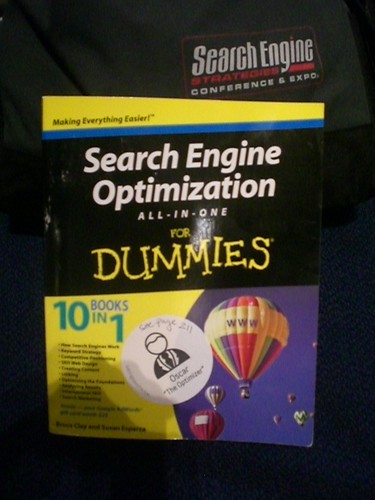Now that your website is up and you are hoping for traffic, you might be curious about what comes next. You need to get your site to start appearing in search engine results. The information in this article will help you with this phase of a website.
Including keywords as well as their common misspellings can help optimize your search engine results. Sites that have effective meta tags will show up in more searches for a higher variety of keywords. As an example, if your website is about drinking glasses, be sure your metatag includes “drinking,” “glasses,” “drinkingglasses,” etc.
Use many types of keywords and even common misspellings. Search engines will “read” these metatags and help you appear in a wider variety of searches. A good example is using the keywords “eyeglasses” and “eyeglases” if your website is all about eyeglasses.
Investigate PPC compensation plans for your affiliate marketing program. Although the profits start small, they can rapidly increase based on affiliate referrals.
Good search engine optimization relies on keyword density. Ideally, your page’s overall keyword density should be at 20% or less.
Instead of writing AP styles for SEO, try writing SEO. Switching to a SEO writing style means including keywords as naturally as possible throughout your writing. As search engine rankings are built off the presence of keywords, your content will shine if you pay close attention to the words you use.
Using product feeds can help draw traffic and business to your site. Feeds like this detail your services and products with images, descriptions and prices. Submit them to sites which compare prices and to the major search engines. Customers interested in the area of business you represent can subscribe through a feed reader.
When selecting your domain name you need to ensure that it includes your main keywords or phrase. Make sure your website is easily found when people search for it. Not all of your site traffic will be generated by affiliate advertisements, but also from people searching directly for your products or services.
Writing a blog or commenting on another person’s blog is a good SEO strategy. Blogs rank well on search results, as the search engines are constantly seeking new content and a well set-out website. Backlinks also play a large role in search engine rankings.
One of the first questions to ask is how many years of experience they have in SEO. You need to know all the risks in order to make a truly informed decision.
Add a site directory if you want to get more visitors. This effectively connects each of your webpages. Not only can your visitors use a site map for navigation, the search engines will be able to index your site better if you have one.
Header tags are quite important. Sometimes a header can be really large, but CSS can be used to reduce the size. Since search engine use headers in the ranking of websites, these tags are very important. To draw attention to unique features of your service or products, utilize H1 plus H2 tags as a way to highlight their importance.
Rather than a link exchange, consider an article exchange to boost your search engine rankings. When you do article exchanges, you have to post an article from a different website owner while crediting them with you link. Then they can do that for you on an article that you wrote. It is more efficient than exchanging links, and a win/win for both site owners.
Check out the competitions’ HTML code. This can give you insight on how a successful website operates and help you develop your own successful website. Don’t plagiarize what they do, but do take hints from it for your own plan.
Concentrate on a single subject on each page. Never make the error of attempting to do absolutely everything in one particular post. It confuses clients and prevents them from returning. You will see more success when each page has a separate focus.
Look for non-profit or education sites that will link to your site. You want your site to be linked to respectable, known sources because search engines look positively at this, and they will reflect this in your search engine ranking. By providing high-quality content on your site, you can entice websites with solid reputations to feature you. Content that is deemed useful by these organizations will ultimately become featured.
It is possible to make any particular page of any website more friendly to search engines by inserting keywords in the URL of those particular pages. Using a website URL that is full of numbers or other things that most people won’t be searching for, it will not help to boost the site in a search engine’s rankings. Including important keywords that are relevant to your site will significantly improve your page’s traffic.
Your website should always be easy on the eye for comprehension and simplicity to read. Including accessibility functions like the ability to enlarge fonts can help your site rank higher. Make sure that both search engines and human readers can find what they’re looking for.
As discussed earlier, SEO is crucial in getting exposure for your website. It’s crucial to have your web page listed so that it appears in a web search, because this will help to increase your website traffic. The tips in this article will help you get started.
You should publish and write fresh content as much as you can. Make goals, weekly and daily goals for yourself and stick to them. When a site has more new content, search engines look upon it more favorably than those without fresh content. Sites with more new content appear higher on search engine results pages.
Categories: SEO
Tags: keyword density, search engine optimization, search engine rankings, search engines


